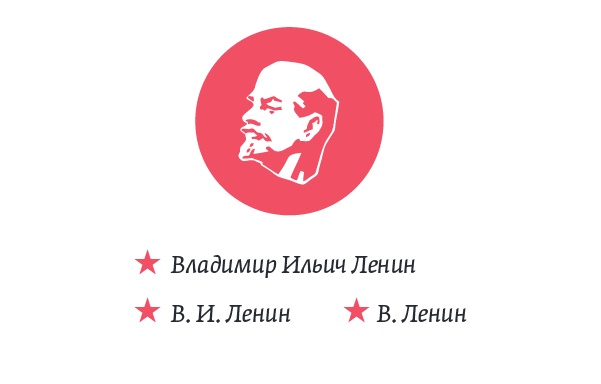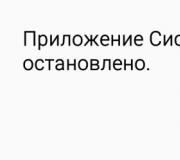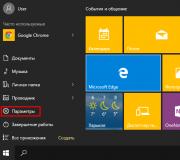What are uppercase or lowercase letters? Lesson on the subject letter not the topic Letter lowercase letter n
2nd grade Subject: writing Teacher: Elena Petrovna Glagolko
Lesson topic: Writing lowercase letter"n".
Lesson objectives:
- learn correct spelling lowercase letter "n";
- correct fine motor skills of students’ fingers;
- cultivate correct posture while writing.
Visual aids and equipment: notebooks, pens, coloring books, cards, colored pencils, alphabet, magnetic letters, colorful alphabet - letter “n”, letters from sandpaper, plasticine.
LESSON PROGRESS:
Organizational point:
- Hello guys! Today we have an unusual lesson, guests have come to us. Let's greet them and get to know each other (each student sits down at his workplace, saying their name: Vlad, Katya, Liana, Valera, Marina, Samvel). - Each student demonstrates the correct seating at the desk: straight back, hands on the desk.
2. Repetition of the material covered, homework:
- And so, we begin the writing lesson. Who can tell me why this item is needed? (Valera - in order to learn how to write letters and words beautifully and correctly).
- That's right Valera, what do you think is necessary for this? (Katya - to write letters, notes.)
- That's right Katya. Let's remember and repeat the alphabet. Valera, Children, what is “Alphabet”? How many letters does it have? (Valera is the letters in in a certain order, each in its place. 33 letters.)
- Well done! Who can tell me what sounds the letters have? (Katya - vowels, consonants) Which letters in the alphabet do not have sounds? (Valera – b,b)
- Performing individual tasks:
Samvel – circling the letter “l”;
Liana – coloring of the letter “l”;
Marina – “fill in the missing letters” card;
Valera - work at the board, sound-letter analysis of the word MOON.
- Well done guys! Everyone completed the tasks. For this stage The following students are awarded the lesson:
Valera – 2 points (butterfly stickers);
Liana – 1 point;
Katya - 2 points;
Samvel, Marina, Vlad - 1 point each.
- Whoever scores the most points by the end of the lesson will receive a grade of “5”, etc.
- Guys, let’s take a little rest and do a little exercise...
3. Physical exercise – “We also know how to relax.
- 1,2,3,4,5 – we all know how to walk
We also know how to relax
Let's put our hands behind our backs,
Let's raise our heads higher
And let’s breathe easily... (2 times)
(students perform movements behind the teacher under speech accompaniment).
- Everyone did well, rested and sat down at their desks.
4. Work on the topic of the lesson: “Writing the lowercase letter “n”.”
- Today the topic of our lesson is “Writing the lowercase letter “n”. Guys, who can tell me which letters are called lowercase and capital letters? (Valera - uppercase, lowercase letters, these are the letters that we write ourselves, they are small, words in sentences begin with them).
- That’s right, and today we will continue to learn to write exactly this letter. Please look at the board, here in the picture we see the letter “n”, please note that at the top it is written in black, thick font capital letter"N", big and small. And below, in a thin black font, is written the capital letter “n” - uppercase and lowercase. And it is the uppercase and lowercase letter “n” that we will learn to write. Let's take a closer look at what elements this letter consists of? (-, I, L).
- Yes, to write the letter “n”, you need to correctly connect all the elements and I will now show you how to do it correctly (n).
- Guys, now let’s practice writing the lowercase and capital letters “n” correctly. (individual work at the board with each student)
- Well done! Most a beautiful letter wrote: Valera, Vlad. And for this they get one point.
- Now we will also consolidate the spelling of the letter “n” and will write it with our fingers (sanding the letter “n”, tracing it. Students run their fingers over the letter, remembering all the elements of the letter and their connection).5. Physical education lesson “Turtle”:
- guys, let's prepare our hands and fingers for writing and do some fun hand exercises, repeat after me.
(imitation of the teacher’s movements, with speech accompaniment)
- Turtle, turtle lives in the house,
He will show the head, then remove it... (3-4 times).
6. Reinforcement of the lesson:
- Now let's complete the tasks in the notebooks. When writing, remember to maintain proper posture.
1. Work in notebooks (individual task for each student).
- upon completion of work, evaluation of students’ work in points.
2. Warm-up for fingers “We wrote, we wrote...”
3. Modeling the letter “n” from plasticine.
- plasticine, letter “n”, cardboard;
- step by step instructions with an example of the letter “n”;
- modeling the letter “n” from plasticine by students (dosed assistance to Liana, Marina, Samvel, Vlad. For Valera, Katya - additional tasks); - Valera, Katya - modeling the letters “a, o, p, l);
- evaluation of work in points.
Individual work carried out at all stages of the lesson with Vlad, Marina, Liana, Samvel, dosed assistance is provided. Additional tasks are offered for Valera and Katya.
7. Summing up the lesson:
- our lesson is coming to an end. Who can tell me what we learned to do in this lesson?
- student answers (write capital, small letter “n”).
- Why did we do this?
- children's answers (in order to learn to write).
- That’s right, today you and I learned to write the lowercase letter “n”, some did better, some did worse. And therefore we have something to strive for in the following lessons.
- Now let’s count the points you earned and find out what grades you will get for the lesson:
Valera – 5,
Katya – 4,
Vlad-4,
Liana, Samvel, Marina – 3.
8. Homework: (in notebooks for homework)
Group 1 (Valera. Vlad) – writing the letter “n” and syllables with it: “na, but, well.” Group 2 (Katya, Liana, Marina) – writing the letter “n”
Group 3 (Samvel) – writing the letter “n” along the outline.
- Everyone will find their assignment in the notebook.
- Now let's thank our guests and say thank you to everyone! We look forward to your visit in the new academic year! (students give their letters to the guests).
- Goodbye! The lesson is over.
Finding the answer
Total found: 20
| Question No. 294282 | ||
Hello. How do you spell "evil empire" (USSR) - in quotes, with a small letter?
Yes, this spelling is correct.
| Question No. 288140 | ||
Belgorod is called the city of the first fireworks. How to write “the city of the first fireworks”: in quotation marks or the word “city” with capital letters? Thank you!
Answer help desk Russian language
You can write the first word with capital letter, if you mean a figurative name of the city. There is no need to use quotation marks.
In unofficial stable, including figurative, names of states and cities, the first (or only) word is written with a capital letter, and also (if any) proper names, eg: Land of the Rising Sun(about Japan) Land of morning freshness(about Korea), Celestial Empire empire or Celestial Empire(about imperial China), Country maple leaf (about Canada), Country of tulips(about Holland), Eternal city(about Rome) White stone, Mother See(about Moscow), Northern Palmyra(about St. Petersburg).
| Question No. 284608 | ||
How to write the names of states or territories from the beginning of the last century, such as: Kuban People's Republic, Lithuanian-Belarusian Soviet Socialist Republic, etc.? It seems that they have not existed for a century, and everything must be written in lowercase except the first word, but on the other hand there are analogues such as the Ukrainian Soviet Socialist Republic, the Bulgarian People's Republic, which are also gone, just not for a century, but for a couple of decades.
Russian help desk response
Not an easy question. On the one hand, in historical (currently non-existent) names of states, the first word and the proper names included in the name are written with a capital letter: Kingdom of France, Kingdom of Naples, Kingdom of the Two Sicilies; Roman Empire, Byzantine Empire, Russian Empire; Novgorod Republic, Venetian Republic; Old Russian state, Great Liao state etc.
On the other hand, in the title Union of Soviet Socialist Republics all words are written with a capital letter, although this state also no longer exists. Capital letters are also preserved in the names of the union republics and in the historical names of the countries of the socialist camp: Polish People's Republic, People's Republic of Bulgaria etc.
Historical distance is certainly one of the key factors here. Some time must pass (not two or three decades, but much more) before there are grounds to write Union of Soviet Socialist Republics similar to Russian Empire.
The historical distance seems to allow us to write in the names you cited state entities capitalize only the first word (these formations existed for a short time and disappeared almost 100 years ago). But, on the other hand, the capital letter in each word of the name emphasizes the fact that these combinations were at one time the official names of states (or claimed such status). If it is important for the author of the text to draw the reader’s attention to this, he has the right to leave capital letters (even despite the fact that such state entities have not been on the map for a long time).
| Question No. 282901 | ||
Hello!In response to question No. 254952, you wrote: “All words (except official ones) in the official names of existing states and state associations are written with a capital letter. The state of the Russian Empire does not currently exist, this is a historical term, therefore only the first word is written with a capital letter.” .
According to this logic, one should write “Union of Soviet Socialist Republics” and “Russian Soviet Federative Socialist Republic”, right? According to the answer to question No. 249081 - no: "The Union is written with capitals in the official names of states: Union of Soviet Socialist Republics, Union of Australia."
So, the answer to question #254952 directly contradicts the answer to question #249081.
Please be so kind as to explain what exactly the recommendations you gave above are based on. What specific language norms force us to write the names of real-life and historical states in different ways; for some reason, write the word “union” in the names of states in capitals, and the word “empire” in lowercase.
Thank you.
Russian help desk response
Such a fixation is in the standard dictionaries of the Russian language. See, for example: Lopatin V.V., Nechaeva I.V., Cheltsova L.K. Uppercase or lowercase? Spelling dictionary. M., 2011; Rosenthal D. E. Handbook of the Russian language. Uppercase or lowercase? – 7th ed., revised. and additional M., 2005 and other sources.
It's also a matter of historical distance. Soviet Union ceased to exist a little over 20 years ago, and the Russian Empire has not existed for almost 100 years. Who knows, maybe in 100 years there will be a normative spelling Union of Soviet Socialist Republics?
| Question No. 279192 | ||
Hello, Gramota.ru. Once again I am writing to you with questions regarding the use of uppercase/lowercase letters.
Maybe at least this time it will be more interesting for someone to think about writing organizations and states, and not answer for the 125th time about something that doesn’t contain verbs...1) (R)Roman Republic and Empire
2) Interparliamentary (A) Assembly of (P) Orthodoxy
3) European (M)interparliamentary (A)assembly of (P)Orthodoxy
4) All this led to the creation in 1997 of the Islamic Inter-Parliamentary Union within the framework of the Islamic (K) Conference...
Russian help desk response
Correctly: Roman Republic and Empire; Interparliamentary Assembly of Orthodoxy; European Interparliamentary Assembly of Orthodoxy; all this led to the creation in 1997 of the Islamic Inter-Parliamentary Union within the framework of the Islamic Conference.
| Question No. 278898 | ||
Hello!
1. I found that the House of Commons, House of Lords, and Parliament are written with a lowercase letter. What if in the text about the House of Commons, not the phrase House of Commons is used several times, but simply the word chamber? Should I write it in lowercase too?
2. The British Empire - right, a lowercase empire? And when, when repeated, they write simply empire - then in capitals?
Thank you
Russian help desk response
1. Yes, similar.
2. Correct: British Empire; empire.
| Question No. 277615 | ||
Name of the state that existed in 1976-1979: Central African Empire or Central African Empire?
Russian help desk response
Only the first word should be capitalized.
| Question No. 274319 | ||
Of interest are the capitals in the expression: Roman Republic (as well as in parts of this period - the Early Republic, the Middle... and the Late...).
Russian help desk response
Reference book by D. E. Rosenthal “Capital or lowercase?” fixes: Roman Republic. Combinations of these words with definitions Early, Late not noted in dictionaries, but by analogy with what is recorded in the specified reference book Early Roman Empire correctly: Early Roman Republic, Late Roman Republic.
| Question No. 272430 | ||
Is it acceptable to write Russian Empire? Or is it necessary to write the word “empire” in lower case? Is it possible to extend the analogy here with writing the day of victory in the 41-45 war as “Victory Day” and as “Victory Day” - now, it seems, both of these types of spelling are considered acceptable.
Russian help desk response
Word empire must be written in small letters. Writing with a capital (capital) letter is unacceptable, because all words are written with a capital letter only in the official names of existing states (Russian Federation), A Russian Empire – the name is historical.
| Question No. 263616 | ||
Good afternoon Capital letters again. Russian Empire or empire? Both spellings are available. Which is correct?
Russian help desk response
Right: Russian Empire. Word empire in historical names of states it is written with a lowercase letter.
| Question No. 263602 | ||
Good afternoon, dear “Gramota”!
Please answer the following questions.
1) Is there a rule that unifies the spelling of the names of ancient states, as well as variations of their names? Illustrate your answer with the following example (variations of the name of the same state are given).
a) F/Frankish I/empire (G/state, D/power, K/kingdom);
b) I/empire (G/state, D/power, K/kingdom) F/Franks;
c) K/Carolingian I/empire (G/state, D/power, K/kingdom);
d) I/empire (G/state, D/power, K/kingdom) K/Carolingians;
e) I/empire (G/state, D/power, K/kingdom) of Charlemagne.
2) In the dictionary “Lowercase or uppercase?” Lopatin and Cheltsova are offered the following spelling: Hitler Youth, Ku Klux Klan. But is this right? After all, this original titles socio-political organizations, therefore, should be written with capital letter and in quotes. (This spelling seems especially strange in the phrases: Hitler Youth organization/Ku Klux Klan, Hitler Youth movement/Ku Klux Klan.)
Russian help desk response
1. The rules are as follows. Words kingdom, republic, state etc. are written with a capital letter in the official names of modern states, for example: Kingdom of Spain, United Kingdom; Federal Republic of Germany, Republic of Lithuania; State of Israel, State of Qatar. In the historical names of states the words kingdom, republic, state, empire, power etc. are written with a small letter, and proper names are written with a capital letter, for example: Kingdom of France, Kingdom of Sicily; Novgorod Republic, Venetian Republic; East Frankish State, State of Zhou; Russian Empire, British Empire, Qin Empire; Great Moravian Empire.
Thus, the spelling will be correct: Frankish State, Frankish Empire, Frankish Empire, State of the Franks(both words are lowercase, because there is no proper name), Carolingian Empire, Charlemagne's Empire, Charlemagne's Empire etc.
2. We asked one of the authors of the dictionary, V.V. Lopatin, to answer this question. Lowercase writing of words such as Hitler Youth And Ku Klux Klan(although these are, indeed, individual names of organizations and movements), is due exclusively to a long-standing tradition. A tradition, in the formation of which a certain ideological background also played a significant role: Hitler Youth - Nazi, enemy organization, Ku Klux Klan - an organization that preaches a racist ideology hostile to us. In other words, a tradition has developed of writing these words in lowercase as denoting alien concepts.
| Question No. 254952 | ||
Hello! Earlier, in your answers to questions Nos. 186741, 190772 and 247771, you indicated that the second word in the name Russian Empire is written with a lowercase letter. Please explain this spelling. According to the rules given here on the website, Ҥ 100. Individual names of astronomical and geographical objects (including the names of states and their administrative and political parts), streets, buildings are written in capital letters. If these names are composed of two or more words, then all words are written with a capital letter, except for function words and generic names." IN in this case The Empire is not a generic name, but a proper name, just like the Russian Federation. Why is it that in the second case the second word is considered part of the proper name and is written with a capital letter (Federation), and in the first case it is considered a generic name and is written with a lowercase letter (empire)???
What is this based on and is it not a pretentious relic of the recent past?
Thank you! Sincerely,
Russian help desk response
All words (except official ones) in the official names of existing states and state associations are written with a capital letter. States Russian Empire does not currently exist, this is a historical term, so only the first word is capitalized. Wed: Kingdom of Spain, United Kingdom (official names modern states), but: Kingdom of France, Kingdom of Naples(historical names); Republic of Cyprus, Italian Republic, But: Venetian Republic, Novgorod Republic. Right: Russian Empire(and also Roman Empire, Ottoman Empire, British Empire etc.).
| Question No. 251064 | ||
Roman Empire or Roman Empire...is Roman capitalized in this case?
Russian help desk response
Right: Roman Empire.
| Question No. 247771 | ||
In what cases are capital letters used in the names of military units of the army of the Russian Empire, for example “Cavalry Guards, Horse Guards, Life Hussars, Imperial Riflemen and Preobrazhentsy”?
Russian help desk response
The first words in regiment names are written with a capital letter, for example: Cavalry Regiment, Preobrazhensky Regiment, Life Guards Hussar Regiment, Life Guards Cuirassier Regiment etc. Words cavalry guards, Preobrazhentsy, life hussars, horse guards, imperial riflemen etc. are written in lowercase letters. Please note: the word empire in the title Russian Empire also written with lowercase.
Properly using spaces, commas, em dashes and em dashes, invisible to the naked eye, in text design is not at all the whim of a boring perfectionist working as a proofreader or layout designer. This is respect for the reader and the native language. The text of a layout or article, typed according to the rules, is pleasing to the eye and, what can we say, serves as a marker of professionalism. With these 10 commandments we will show you how to write correctly emails and type texts for other needs.
——————————————————————————
Need a logo for a useful social initiative?
Submit today
——————————————————————————
1-
Quotes: everything will be in order
Mysterious punctuation mark designers came up with two types of quotation marks, affectionately and childishly nicknamed “Christmas trees” and “paws.” So, in all incomprehensible situations We always choose conifers. It is this type of quotation marks that is correct to use when formatting text. “Paws” are rare guests in texts, and they come only in those cases when it is necessary to highlight a quotation within a quotation, which, in turn, is still highlighted at the edges in a “herringbone” pattern. For clarity, imagine a spruce grove, in the very center of which lives a rare animal, periodically leaving traces, those very “paws”.
2-
Dash and hyphen: size matters
There is a long “—” and a middle “-” dash, and there is also a “-” hyphen, a kind of baby. Em dash Not only is it the largest, it also requires you to surround yourself with spaces: air for it. The middle dash and hyphen are more modest and don’t use spaces to save space. But the middle dash is the rarest and is used only when it is necessary to indicate a certain time period.
For example, 1980-1985 or 21:15-22:44. But still, all these guys have something in common: they never transfer to new line, remain in service.

3-
Gap: fill
There are spaces that we use to normally separate words, and there are those called inseparable and connect words, parts of words or characters that cannot be transferred to another line. Length non-breaking space the same, only it prevents display and printing programs from breaking the line at this point.

Non-breaking space fight back:
- units of measurement (53 kg. or 130 hp.)
- percent sign (12%),
- degree sign (46 °C). However, if the degrees are indicated without a scale, there is no space (40°).
- starting with five-digit numbers, the numbers are divided by a non-breaking space into three-digit groups (1,000,000)
- currency symbols in front of numbers are firmly attached to them and do not require a space (¥350). If it's the other way around, non-breaking space put (666 €). But in general, in a decent text, currency is written in letters, not symbols: euro, dollar, yen, and so on at the current exchange rate.
- with copyright sign: Godesigner
- with 1 - 3 letter prepositions, interjections, conjunctions: for example,
“into the basket, and into the mouth”; - country code, city code
-4-
Numbers:neither subtract nor add
It's pretty easy to remember everything here. If there are a lot of numbers and they add up to a mathematical calculation, we separate all the characters with spaces so that they are not crowded inside this calculation.
Like here, for example: 13 + 13 = 26 or here: 4.5 × (1 − 4 / 5) ≤ 1
If mathematical sign belongs to one single number, there is no space, here: +45 or ≥25. And one more thing. If everything is clear with the plus and equal signs on the keyboard, then the minus is lost in the key combination alt+8722 (PC). It is not a hyphen or a dash, as many would like.

5-
Transfer: read syllable by syllable
The rules of hyphenation, so as not to be left out, are based on breaking the word down into syllables. So, you can only transfer:
- whole syllables (non-appeal);
- separate the prefix from the root (disenchanted);
- one root from another (self-critical);
- between doubled consonants (silver).
In other cases, as in the proverb, before cutting once, you should pull the line seven times.

6-
Lowercase and uppercase:
remember geography
In the case of letter case, everything is logical. If a geographical name is proper and exists on the map in a single copy, we emphasize its importance and uniqueness with a capital letter: Moscow, Siberia and then the North Pole. If we're talking about about generic geographical terms or cardinal directions and derivatives from them, we limit ourselves to lowercase letters: island, city, northwest, let's go south? Definitely, somewhere on the southeastern peninsula.

-7-
Telephone numbers:
We call and call
The painful point of all proofreaders in the world is writing telephone numbers, which are written differently on layouts and websites every time, unsystematically. It is correct to start writing the number with the + sign (+7 812 448 24 12), or with 8 if we are talking about an international operator (8 36 20 213 91 71).
The numbers are falling off inseparable spaces in pairs or triples, like soldiers on leave, but replace the spaces with hyphens, a kind of short beeps, not forbidden.

8-
Addresses, as well as passwords and appearances
As in the point with lowercase and uppercase, you need to focus on the uniqueness of the geographical name. Therefore, the words “house”, “street”, “highway” or “city” should be written in lowercase. But if your address is neither a house nor a street, but, for example, “Krasnodar”, “Mira”, take it higher, that is, use capital letters.
——————————————————————————
Need a sign for your business? Today
——————————————————————————
You can write “grandfather’s village” in lowercase, but if you remember that grandfather’s name is Vasily Petrovich Fufaykin and he, of course, is the only one, we take uppercase. Double numbers divided by a scythe, with the letter litera, if there is one, firmly glued to last digit: d. 25/5a. The index is also written together.
-9-
Time and date:dot rule
We talk about time - we remember electronic alarm clocks from the eighties, where hours and minutes were marked with a colon. This is what the text says (23:23). We have the date in mind - we reduce the dots to one, lower one: 12/28/1980. We start with the smallest ones: first we write down the date, then the month, then the year. To write centuries, we turn to ancient Rome with its numbers, which pretend to be Latin on the keyboard: ХIX, L, XIV.
-10-
Titles and titles:be more modest
It’s easy to remember: all presidents and dictators, no matter how terrible they are, general sponsors, no matter how important they are, queens and the entire royal army, are written exclusively with a lowercase letter. Too much honor. Only two categories of Russians deserve capital letters and have the right to be called people with a capital letter: Heroes Russian Federation and Heroes of Labor of the Russian Federation. So, workers, go ahead.

Compiled based on a memo for RIA Novosti



